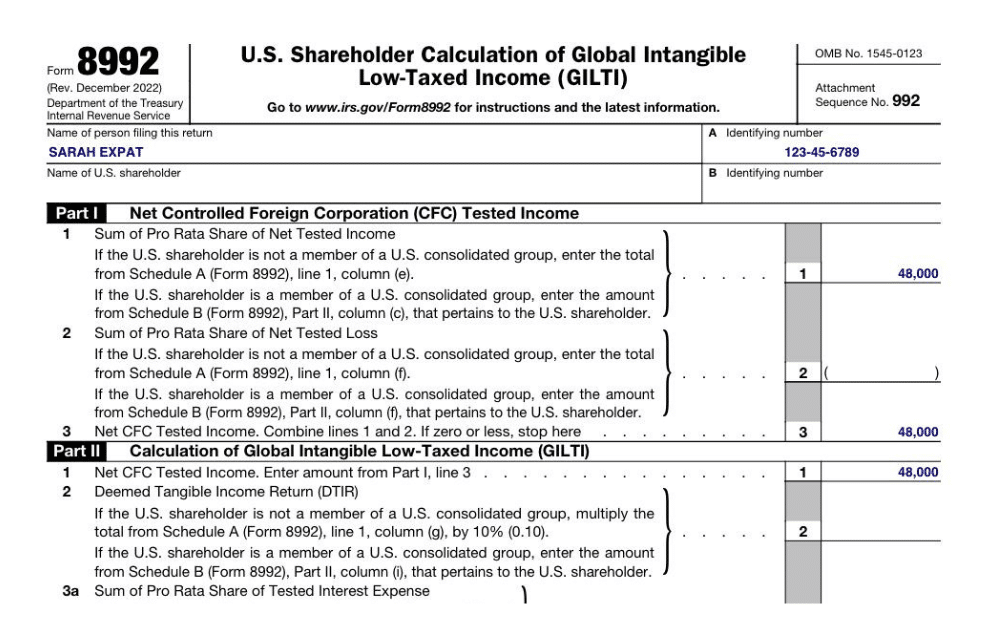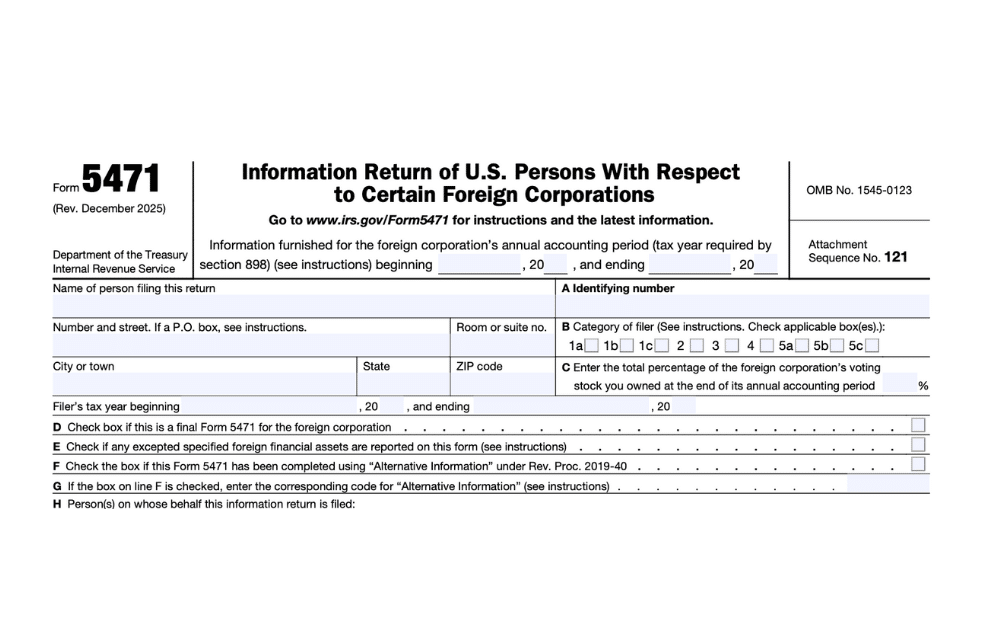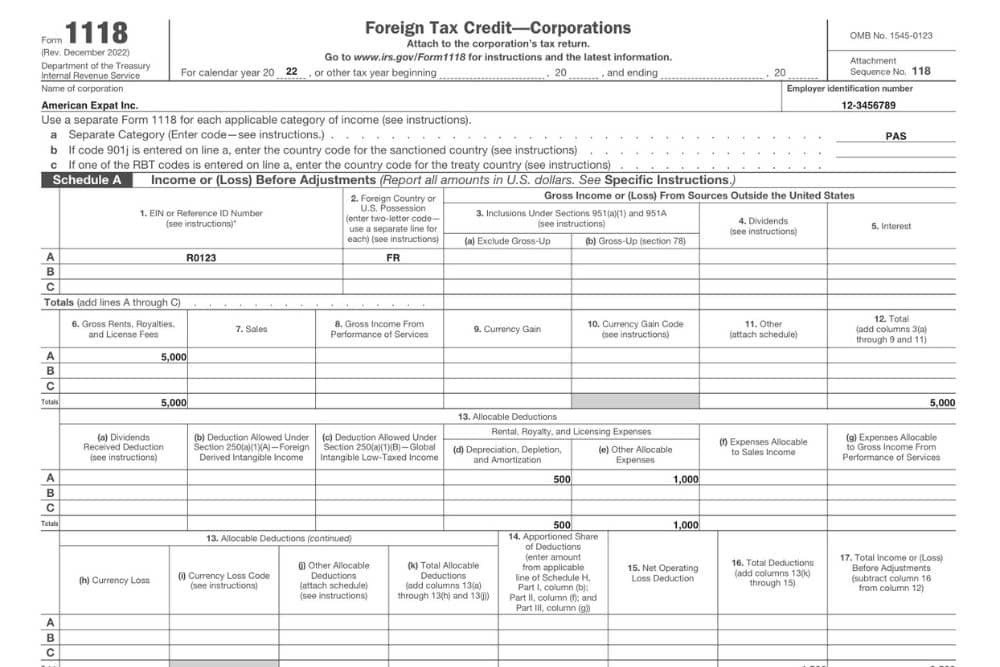GILTI High Tax Exception: How to Exclude High-Taxed Foreign Income [2025]
![GILTI High Tax Exception: How to Exclude High-Taxed Foreign Income [2025]](https://www.greenbacktaxservices.com/wp-content/uploads/2024/02/GILTI-high-exemption.png)
- What Is the GILTI High Tax Exception?
- How Does the High Tax Exception Threshold Work?
- Which Countries Qualify for the High Tax Exception?
- How Do I Calculate if My Foreign Income Qualifies?
- What Are the Benefits of the High Tax Exception?
- What Are the Drawbacks I Should Consider?
- Should I Choose High Tax Exception or Section 962 Election?
- Real Example Comparison:
- Can You Use a Section 962 Election to Reduce GILTI Taxes?
- What Happens to My Foreign Tax Credits and QBAI When I Elect the GILTI High-Tax Exception?
- How Does the GILTI High-Tax Exception Differ from the Subpart F High-Tax Exception?
- How Do I Make or Revoke the High Tax Exception Election?
- How Does This Affect My Other Tax Benefits?
- What Common Mistakes Should I Avoid?
- What Should I Know About 2026 Planning?
- What Are My Next Steps?
- Let Greenback Help You Claim the GILTI High Tax Exception
Recent IRS regulations show that CFCs paying foreign taxes above 18.9% can completely escape GILTI taxation through the high tax exception. Starting in 2026, this threshold will likely increase to around 25.2% as GILTI rates rise to 12.6%, but here’s the good news: if your foreign corporation pays substantial taxes abroad, this election can eliminate your entire US GILTI obligation.
The GILTI high tax exception allows you to exclude foreign income from GILTI calculations when that income is already taxed at high rates abroad. This prevents double taxation and can save thousands in US taxes annually. Currently, foreign tax rates above 18.9% qualify, though this threshold will increase with future tax changes.
What Is the GILTI High Tax Exception?
The GILTI high tax exception is a protective rule that excludes certain foreign income from GILTI calculations when that income already faces high foreign taxes. This prevents unfair double taxation on income that foreign governments already tax heavily.
- Current threshold (2025): Foreign tax rate must exceed 18.9% (90% of the 21% US corporate rate)
- Future threshold (2026+): Expected to rise to approximately 25.2% as GILTI effective rates increase
- Relief for expats: This is an all-or-nothing election that applies consistently across all your controlled foreign corporations, providing complete protection for qualifying income.
How Does the High Tax Exception Threshold Work?
The threshold calculation is straightforward: 90% of the highest US corporate tax rate determines eligibility.
2025 Tax Year:
- US corporate rate: 21%
- High tax exception threshold: 18.9% (21% × 90%)
- Foreign taxes above 18.9% qualify for complete exclusion
2026 Tax Year and Beyond: With GILTI effective rates increasing to 12.6% under the One Big Beautiful Bill, the threshold may rise significantly, potentially reaching 25.2% if base rates increase to 28%.
Track foreign tax payments in both local currency and USD throughout the year, as exchange rate fluctuations can affect whether you meet the threshold.
Which Countries Qualify for the High Tax Exception?
Based on current corporate tax rates, expats in these locations frequently benefit from the GILTI high tax exception:
High-Tax Countries (Above 18.9% threshold):
- Germany: 26-33% (depending on location)
- France: 25-28%
- Belgium: 25%
- Austria: 25%
- Japan: 23.2%
- Italy: 24%
- Denmark: 22%
- Norway: 22%
Borderline Countries (Close to threshold):
- UK: 19% (slightly above current threshold)
- Canada: 15-27% (varies by province)
- Australia: 25% (for larger companies)
Low-Tax Countries (Below threshold):
- Ireland: 12.5%
- Singapore: 17%
- Hong Kong: 16.5%
- UAE: 9%
How Do I Calculate if My Foreign Income Qualifies?
Determining eligibility requires calculating your effective foreign tax rate using this simple formula:
Formula:
(Foreign Income Taxes Paid ÷ Foreign Pre-Tax Income) × 100
Example Calculation:
- CFC pre-tax income: $200,000
- Foreign corporate taxes paid: $42,000
- Effective rate: ($42,000 ÷ $200,000) × 100 = 21%
- Result: Exceeds 18.9% threshold, qualifies for exception
Use actual taxes paid, not statutory rates. Deductions, credits, or special tax regimes can significantly affect the effective rate.
What Are the Benefits of the High Tax Exception?
Primary Benefits
- Complete GILTI exclusion: Qualifying income is entirely removed from GILTI calculations, eliminating US tax on that income.
- Simplified compliance: No need to track foreign tax credits or make Section 962 elections on excluded income.
- Tax certainty: Once elected, you know precisely which income receives protection from GILTI tax.
Secondary Benefits
- Reduced Form 8992 complexity: Fewer calculations needed when significant income qualifies for exclusion.
- Protection from future rate changes: Excluded income remains protected regardless of future US tax law modifications.
What Are the Drawbacks I Should Consider?
Loss of Foreign Tax Credit Benefits
Key consideration: Electing the high tax exception means you cannot claim Foreign Tax Credits on the excluded income. This can create issues if:
- You have other US source income that could benefit from foreign tax credits
- Your foreign tax rate significantly exceeds the threshold
- You have foreign tax credit carryforwards from previous years
All-or-Nothing Requirement
The election must apply consistently to all controlled foreign corporations. This can be disadvantageous when you operate in both high-tax and low-tax countries.
Future Threshold Increases
Starting in 2026, higher GILTI effective rates may increase the high tax exception threshold, potentially disqualifying income that currently benefits from the exclusion.
Stop guessing. Download the expert guide now.
"*" indicates required fields

Should I Choose High Tax Exception or Section 962 Election?
Many expats must choose between these two beneficial approaches:
Choose High Tax Exception When:
- Foreign tax rates substantially exceed the threshold
- You want simplified compliance procedures
- You don’t need Foreign Tax Credits for other income
Choose Section 962 Election When:
- Foreign tax rates are close to but above the GILTI threshold (currently 13.125%)
- You want to preserve Foreign Tax Credit benefits
- You have multiple income streams that could benefit from credits
Real Example Comparison:
Scenario:
UK company with 19% tax rate, $100,000 income
High Tax Exception Approach:
- Income excluded from GILTI: $100,000
- US tax on GILTI: $0
- Foreign tax credits available: $0
Section 962 Approach:
- GILTI inclusion: $100,000
- US tax at 10.5% effective rate: $10,500
- Foreign Tax Credit (80% of $19,000): $15,200
- Net US tax: $0 (foreign tax credit eliminates liability)
- Advantage: $4,700 in excess foreign tax credits available for other income
Can You Use a Section 962 Election to Reduce GILTI Taxes?
Yes, GILTI (Global Intangible Low-Taxed Income) can be combined with a Section 962 election.
Here’s how it works:
- Section 962 election allows individual US shareholders (including expats) to be taxed on GILTI as if they were a US corporation. This means:
- They can claim the 50% GILTI deduction (under IRC §250).
- They can use foreign tax credits (FTC) against their GILTI liability (up to 80% of foreign taxes paid).
- Without the 962 election, individuals are taxed on GILTI at their ordinary income tax rates without access to corporate deductions or FTC.
Key Benefits of Section 962 with GILTI:
- Potentially reduces the effective US tax rate on GILTI to around 10.5% (before considering FTC).
- Allows claiming of indirect foreign tax credits.
Starting in 2026, due to changes under the OBBB (One Big Beautiful Bill), the GILTI deduction is adjusted from 50% to 40%, slightly increasing the effective tax rate.
If you’re filing as an individual (rather than through a US corporation), using Section 962 may be the only way to benefit from the lower corporate rates and FTC relief. Always worth modeling both scenarios before deciding.
What Happens to My Foreign Tax Credits and QBAI When I Elect the GILTI High-Tax Exception?
When you elect the GILTI high-tax exception, you lose more than just the income inclusion. Both the related foreign taxes and Qualified Business Asset Investment (QBAI) tied to that excluded income are also removed from your tax calculations.
Can I Still Use Those Foreign Taxes for Credits Elsewhere?
No. When income is excluded under the high-tax exception, any foreign taxes paid on that income are also excluded from foreign tax credit calculations. This prevents double benefits—you can’t both exclude the income and claim credits for the taxes paid on it.
For example, if your German CFC pays €100,000 in foreign taxes on excluded high-taxed income, you cannot use those taxes to reduce your US liability on other income sources.
Does Losing QBAI Increase My Remaining GILTI Tax?
Yes, it can. Any QBAI associated with excluded income doesn’t reduce your GILTI inclusion on the remaining income. Since QBAI typically provides a deduction that reduces overall GILTI liability, losing this deduction could increase your effective tax rate on remaining GILTI.
Consider this: Your CFC has $1 million in tested income split between high-taxed and low-taxed activities, with $200,000 in QBAI. Excluding the high-taxed portion along with its related QBAI leaves you with less income but proportionally less QBAI to offset it.
Should I Still Elect the High-Tax Exception?
It depends. The loss of foreign tax credits and QBAI deductions can sometimes outweigh the benefits of excluding high-taxed income. You need to calculate your total US tax liability both with and without the election. A qualified international tax professional can model different scenarios to determine the optimal approach.
How Does the GILTI High-Tax Exception Differ from the Subpart F High-Tax Exception?
While both exceptions prevent double taxation on high-taxed foreign income, they apply to different income types and have distinct rules.
What Income Does Each Exception Cover?
The Subpart F high-tax exception applies specifically to passive income categories like foreign personal holding company income and foreign base company sales income. The GILTI high-tax exception applies more broadly to tested income from all controlled foreign corporations, covering most active business income.
Can I Make One Election for Both Exceptions?
Yes. Under final IRS regulations, you can make a single election that applies both exceptions simultaneously to all qualifying income within a tested unit. This creates consistency but requires the same treatment across all your CFCs.
When Do I Make This Election?
The election is made annually and applies to all CFCs in your controlled group for that tax year. Once made, it’s binding for that year, but you can reassess each year based on changing foreign tax rates or business conditions.
This annual flexibility lets you adapt to changing circumstances, such as when foreign tax rates change or your business operations shift between countries with different tax rates.
How Do I Make or Revoke the High Tax Exception Election?
Making the Election
The GILTI high tax exception election is made on Form 8992 (US Shareholder Calculation of Global Intangible Low-Taxed Income).
Timing: You must make the election by the due date (including extensions) of your tax return for the first year you want it to apply.
Consistency requirement: Once made, the election applies to all future years unless properly revoked.
Revoking the Election
You can revoke the high tax exception election, but Treasury regulations require:
- Filing amended returns for the election year and all subsequent years
- Obtaining IRS consent in some circumstances
- Recalculating GILTI for all affected years
Model multiple scenarios before making the initial election, as revocation can be complex and costly.
How Does This Affect My Other Tax Benefits?
Foreign Tax Credit Impact
Excluded income reduces your Foreign Tax Credit pool, which can affect:
- Credits available for other foreign source income
- Carryback and carryforward calculations
- State tax planning opportunities
Subpart F Coordination
The high tax exception applies separately to Subpart F income under Section 954(b)(4). You can have different elections for GILTI and Subpart F income from the same CFC.
Future Tax Planning
Consider how the election affects:
- Estate and gift tax planning with foreign assets
- Potential changes in foreign tax rates
- Business exit strategies and sale planning
What Common Mistakes Should I Avoid?
Not Considering Currency Effects
Foreign exchange fluctuations can push you above or below the threshold unexpectedly. Monitor rates throughout the year and consider hedging strategies.
Ignoring Mixed-Source Income
If your CFC has income from multiple countries with different tax rates, calculate the blended effective rate carefully.
Failing to Plan for 2026 Changes
Current elections may become less favorable when the threshold increases. Review your strategy before the changes take effect.
Not Coordinating with Other Elections
The high tax exception can interact poorly with other beneficial elections. Analyze the combined impact before committing to any strategy.

What Should I Know About 2026 Planning?
With significant GILTI changes taking effect in 2026, now is the time to review your high tax exception strategy:
Key Changes:
- Higher effective GILTI rates (12.6% vs current 10.5%)
- Potential threshold increase (possibly to 25.2%)
- Elimination of the QBAI deduction
Action Items:
- Model your 2026 tax liability under current and new rules
- Consider timing strategies to optimize elections before rule changes
- Review CFC structures that may benefit from reorganization
- Evaluate alternative strategies, such as disregarded entity elections
What Are My Next Steps?
The GILTI high tax exception can provide substantial relief, but it’s not optimal for every situation. Here’s your clear action plan:
- Calculate your effective foreign tax rates for all CFCs
- Compare the benefits of the high tax exception vs the Section 962 election
- Model the impact of 2026 rule changes on your strategy
- Make elections consistently across all controlled entities
- Document your analysis to support your chosen approach
Tax elections are binding decisions with long-term consequences. What works today may not be optimal under tomorrow’s rules, but with proper analysis, you can make informed decisions that serve your interests.
Let Greenback Help You Claim the GILTI High Tax Exception
If you are a shareholder in a controlled foreign corporation, you may be eligible to claim the GILTI high tax exception, and we can help. At Greenback Expat Tax Services, we give taxpayers around the world the support they need to optimize their finances. No matter your situation, we’ll customize our expat tax services for your unique needs.
If you’re ready to be matched with a Greenback accountant, click the get started button below. For general questions on expat taxes or working with Greenback, contact our Customer Champions.



